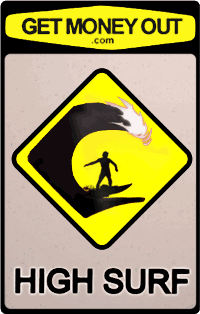Events on Wall Street and resulting hearings in Congress in the past several months have made manifest the fact that the financial institutions and others cannot exist under unbridled capitalism. Perhaps Citicorp is the best example. They are the recipients of billions of dollars in aid and judged to be too big to fail. Sandy Weill, former CEO, is said by Charlie Gasparino of CNBC to have treated this one-time great corporation like his own personal playpen. He was also instrumental in appointing Bob Rubin, former Secretary of the Treasury under President Clinton, to the position of Chairman of the Executive Committee of the Board of Directors of Citicorp. Rubin is quoted as saying, in effect, that he wasn't interested in becoming part of management but would like to serve in an advisory role to the Board of Directors and CEOs. In this position he is said to have okayed the leveraging of assets 39:1. If that had worked he would have been a hero. It didn't work and Rubin suffered no ill consequences.
What is evident now is that after the smoke clears, the congress should and will enact regulatory statutes. These should include, but not be limited to the following:
1. Limit the size of banks
2. Limit the exposure to risk
3. Reinstate Glass-Steagall (legislation which separates commercial and investment banking)
4. Limit the types of monetary instruments, e.g. derivatives, etc, which can be employed
5. The stockholders should have the power to vote on executive salaries should they exceed a certain multiple of the salaries of non-management employees
In the last 16 years, under Presidents Clinton and Bush, we have seen the largest transfer of wealth from the producers to the parasites.
It will be interesting to watch the swing of the pendulum as new bills are taken up in Congress to regulate and somehow rein in Wall Street.











Unbridled capitalism? You need to get your facts straight, because government interference in our capitalistic system started this mess.
ReplyDeleteIn the late 90's government regulations were handed down to force banks write more low income loans. This forced banks to write loans for borrowers to whom they would not normally lend. Forcing banks to loan is not unbridled capitalism.
Early in this decade, the Fed artificially reduced interest rates, instead of letting supply/demand do so. Again, government interference via interest rate setting is not unbridled capitalism.
The government induced low lending standards combined with the availability of artificially cheap money, led to to mortgage problems we have now.
Granted, there was some greed out there but not only on the part of the banks. People were buying houses that they could not afford, speculators were trying to make a fast buck, etc. All of this was brought on by the artifically cheap money and the lower lending standards that came about from government (not market) policies. So much for unbridled capitalism.
Now the government wants to blame the banks, give them money, and force lending again. Did we not learn from this forced lending the first time around?
If I forced you to make a loan that you did not feel comfortable making, wouldn't I be mistaken to then blame you when the loan went bad - telling you that I am now going to have MORE say in the loans you make?
I would love to see whether or not financial institutions could exist under unbridled capitalism, but with unbridled government interference we will never know - at least not here.